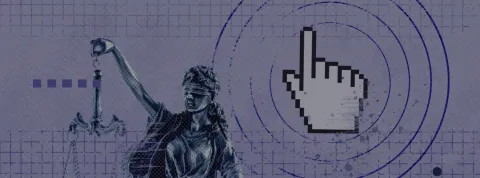
The future of law lies in Legaltech: what it is and why it matters
Traditionally, the skills associated with a good lawyer have included a strong memory, research capabilities, and organizational abilities, among others. But while the legal system is often slow to adapt to regulatory changes, it is not immune to technological disruption. In this context, it's crucial to consider the rise of Legaltech—a movement that is not only transforming the daily operations of law firms but also demanding a shift in the academic and training models that universities must embrace to prepare graduates for the realities of today’s legal profession.
What is Legaltech and how is it transforming law?
According to authors like Richard Susskind, Legaltech refers to the integration of technology into legal practice to enhance its efficiency and effectiveness—covering everything from document automation to predictive risk analysis (Susskind, 2019).
In practical terms, the traditional qualities that once defined a competent lawyer—such as memory, research skills, and the ability to manage complex information—are becoming less central or are evolving altogether. This is because manual tasks like drafting contracts, managing case files, or conducting legal research are increasingly being handled by specialized software and platforms. The result is a profound shift toward a more agile and, inevitably, more technology-driven legal practice.
Differences between Legaltech and traditional legal digitalization
Unlike traditional digitization in the legal sector—which has faced its own challenges due to the complexity of legal terminology found in documents like deeds, mortgages, and contracts, where words such as extinction carry specialized legal meanings—Legaltech goes further. It involves the use of advanced digital tools and technologies to manage legal services more holistically.
Legaltech is not limited to tools designed for legal professionals. It also includes platforms that deliver legal services directly to end users—whether businesses or consumers—marking a fundamental shift in the business model of many traditional law firms.
Two key areas that Legaltech is reshaping are process efficiency and the client experience—both of which have often been overlooked in traditional legal settings. This is partly due to the highly individualized nature of legal consultations, where specific conditions can be crucial, and partly due to the use of technical, inaccessible language that tends to alienate clients. Historically, the legal profession has been slow to embrace automation and standardization—perhaps more than any other sector.
Yet, as the saying goes, reality often outpaces fiction, and the legal world is no exception.
Legaltech applications in professional practice
Blockchain applied to legal analysis
Take the example of smart contracts—agreements executed via blockchain technology. Under civil law, a valid contract must include three essential elements: consent, object, and cause (Article 1.261 of the Civil Code).
Blockchain is a decentralized digital ledger that stores and shares information in a series of linked data blocks, each referencing the one before. In one of its models, this chain is distributed across a network, and thanks to cryptographic safeguards, data in a given block can only be changed by altering all preceding blocks—making it virtually tamper-proof.
This raises fundamental legal questions: How can we guarantee that a person’s consent is valid in this context? Should access to smart contracts be restricted to those who understand how blockchain code works? If these tools offer enhanced legal certainty—and could even replace public registries like land titles—shouldn’t they be available to everyone? And even if we don’t understand their underlying mechanisms, isn’t our informed use of them enough to constitute valid consent?
Online dispute resolution platforms (ODR)
Another notable application of Legaltech is the use of ODR platforms—Online Dispute Resolution systems.
In 2021, a Mexican court enforced an arbitral award that was partially based on the outcome of a decentralized ODR platform operating on blockchain technology.
In this case, the arbitration clause designated a sole arbitrator and stipulated that the entire process would be conducted online. After receiving the parties’ arguments, the arbitrator submitted a summary of each side’s position to a platform. The platform, in turn, presented the dispute to three anonymous jurors. Once they reached a decision, the result was returned to the arbitrator.
The arbitrator then incorporated the appropriate legal analysis and issued a final decision. The entire process—from initiation to final award—took just 24 days.
While the platform itself cannot be classified as an arbitration tribunal, it clearly served as a useful tool to facilitate dispute resolution. This is particularly valuable in cross-border cases, where jurisdictional challenges and procedural complexity can hinder access to justice.
Conclusion
Legaltech is a broad and fast-evolving field, and these examples only scratch the surface. But they illustrate a clear trend: the practice of law—and therefore legal education—must adapt to new realities. Future lawyers must be equipped not only with a solid foundation in legal theory and doctrine, but also with the digital skills and technological understanding necessary to operate effectively in a transformed professional landscape.
At UNIE Universidad, part of Planeta Formación y Universidades, the Grado en Derecho programme includes a specialized Legaltech track that reflects this integrated, multidisciplinary approach—ensuring that graduates are ready to thrive in the legal profession of today and tomorrow.
Susskind, R. (2019). Online courts and the future of justice. Oxford University Press. https://doi.org/10.1093/oso/9780198838364.001.0001
